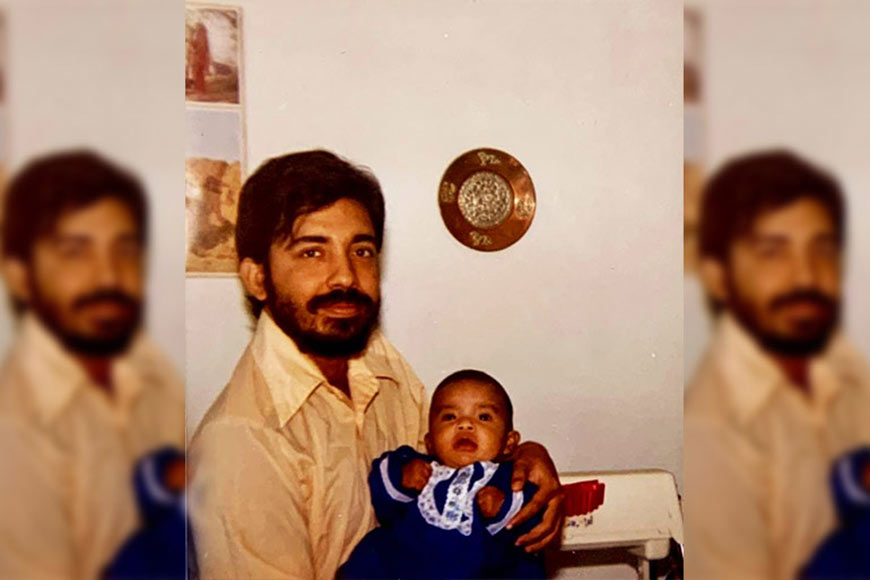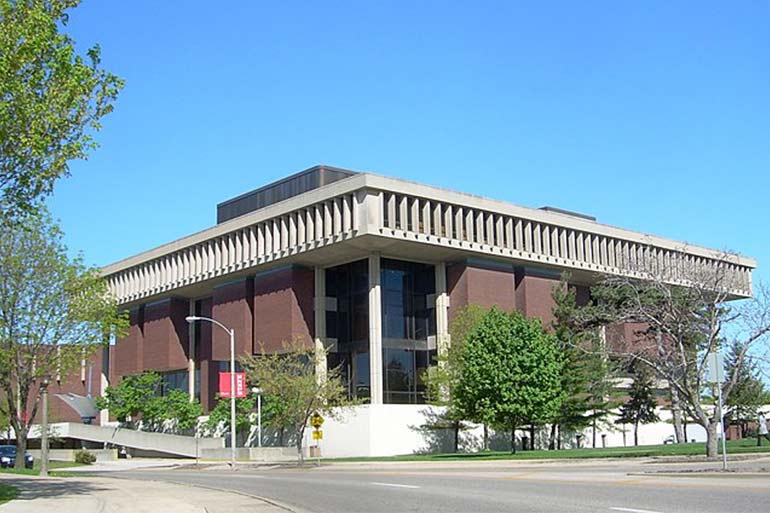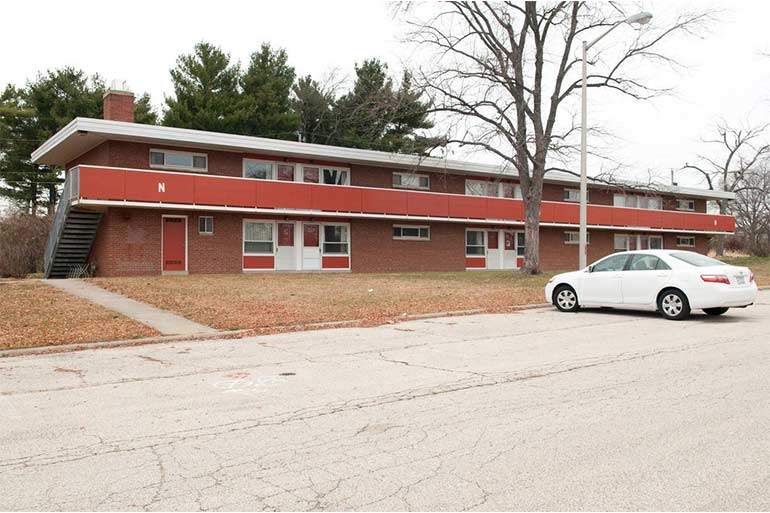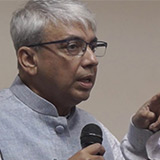Hemanta, Manna, and the battle between two super successful Bengalis

From Burrabazar to Bagbazar, Lake Market to ‘Fake’ Market, the gossip among those who knew us in Kolkata raged on about our extraordinary, impossible shift to America. But what were we doing in America? How were we spending our lives?
I have already written about the loneliness of the initial months, of the deserted Illinois State University quad at midnight, stars winking from the cold sky. Not a soul with whom I could have a proper conversation in Bengali. Well, there was my roommate Ranjan Gupta, but he was a serious research scholar in molecular biology under a serious Jewish professor called Dr Brockman. Our paths rarely crossed, and anyway, Indian students like Ranjan need neither friends nor family.
He had lost his parents early, and for a loner like him, leaving the country of his birth was not really an upheaval, since he liked being on his own anyway. I knew him slightly from Ballygunge Science College, where he used to be two or three batches my junior. Extremely taciturn, with a voice almost like a girl’s, he was polite to a fault. Being the kind who always carried books by Sri Ramakrishna in his pockets, he was certainly not the kind to bond with riotous, garrulous, sports-loving, cinema-mad college seniors like me, whose idea of an all-nighter was a music concert.
And yet, I will never forget that in a distant, friendless land, Ranjan turned up at Chicago airport to escort me to the university campus, 100 miles away. With him were Sunita Basu, and a young Gujarati fellow called Niranjan Shah. Both Sunita and Niranjan were young bachelors from wealthy backgrounds, who lived in expensive dormitories, studied little, and partied a lot. Within days of landing in America, Sunita began dating a White American boy called David, while Niranjan found a White American girl called Rose.
 Milner Library - Illinois State University
Milner Library - Illinois State University
From Chicago, Ranjan accompanied me to Normal in a Peoria chartered bus. What is more, he gave up half his room in Mrs Harrison’s lodgings for me. Had he not done so, I had nowhere else to go. My fellow Bengali student Sunita lived in Walker Hall, which I simply could not afford. So Ranjan, wherever you are now, I remain deeply grateful to you.
We soon realised that the doctor from Bombay was obsessed with Manna Dey, while the engineer from Kolkata worshipped at Hemanta’s feet. An argument over who was better soon began to rage, but the exchange did not remain verbal.
We never became friends, because it wasn’t possible. Besides, you would remain closeted in our common bathroom for an hour, hour-and-a-half at a time. Edgar, Bharat, Ababa and I would often rack our brains about what you could possibly be doing in there for so long. I would ignore their snide smiles. Perhaps you were praying? A man of 25, praying for an hour-and-a-half in the bathroom, is enough to give even a total non-believer like me Swami Vivekananda vibes.
Anyway, what’s gone is gone.
The next semester saw the arrival of yet another Science College junior from Boston, Soumitra Ghosh Roy. Boston, because his elder brother Subrata lived there with his family. Soumitra had taken the smart route, because he had smart people telling him what to do. Despite landing in America in August, he had arranged with the university to begin his classes a semester late, and had spent the roughly four months thus gained with his brother and sister-in-law, getting used to, and learning more about, America. Something I never did.
Once Soumitra arrived, I left Ranjan’s room and began sharing a room with him. He was a good singer, and had trained in Rabindra Sangeet at Dakshini, not far from his Fern Road home. Our intense loneliness was alleviated somewhat as we began playing ‘antakshari’ with Tagore songs. I would sing, ‘Eso go, jwele diye jao pradip khani’, to which he would respond with, ‘Nishith raater pran…’ having picked up the ‘ni’.
But the alleviation was temporary. The crushing loneliness was soon back.
Both Soumitra and I had left our wives in Kolkata. Kajol arrived at roughly the same time as Mukti, and we soon shifted out of housing for singles to Cardinal Court, an apartment complex for married students. It was here that we gradually left behind our terrible trauma and began living a somewhat normal life with our newborn daughter.
I still remember that bedroom apartment on the first floor of P178 Cardinal Court, where White single mother Liz occupied the flat next door with her young daughter. On days off from work, Mukti and I would teach our daughter Bengali songs, and games like ‘agdum bagdum’ and ‘ikir mikir’, cooking buffalo fish and rice for lunch. And Liz would probably put her daughter to sleep and sit half-naked on the sloping green elevation behind the apartment, tanning herself in the sun.
But all this was my life only once Mukti and our daughter arrived. Plenty happened before that.
I can’t remember exactly how and where it happened, but it was within the university itself that Soumitra and I met an Indian Bengali doctor from Bombay and his family. His name I will not reveal, but I think he approached us after we had sung ‘Dola he dola, ankabanka pothe mora…’ to an auditorium full of non-Bengalis at Illinois State University’s annual International Festival.
Having approached us, he then invited us home for dinner, where we met yet another Kolkatan, an engineer from Peoria. Both well-established professionals, the doctor had a large home in Bloomington, the engineer in Peoria. Both were crazy about music, but ‘crazy’ is the operative word here.
What happened was this.
We feasted on good food, and chatted lightheartedly. Dinner over, Soumitra and I were asked to sing. Naturally, we began with Rabindra Sangeet. And then, as always happens, drifted to our beloved Hemanta Mukhopadhyay and ‘Banatal phule phule dhaka…’, ‘Pothe ebar namo sathi…’ etc, Soumitra and I taking turns.
Once Soumitra arrived, I left Ranjan’s room and began sharing a room with him. He was a good singer, and had trained in Rabindra Sangeet at Dakshini, not far from his Fern Road home. Our intense loneliness was alleviated somewhat as we began playing ‘antakshari’ with Tagore songs.
But suddenly, and I don’t know how, the music soured. Perhaps both these well-established Bengalis had been a little too generous with the whisky, because no other explanation occurs to me to this day. We soon realised that the doctor from Bombay was obsessed with Manna Dey, while the engineer from Kolkata worshipped at Hemanta’s feet. An argument over who was better soon began to rage, but the exchange did not remain verbal. As we two newly arrived, penniless students watched open-mouthed, these two successful professionals actually came to blows.
 Cardinal Court
Cardinal Court
Finally, I had to ask, “What do you think you are doing?”
Both looked at me, still furious, but at least no longer trying to beat each other up.
I said, “Please take us home. We don’t want to stay here any longer.”
I had to ask for a ride, since there was no way we would get back to Normal, five miles away, at 11 at night. Our host, the doctor from Bombay, said, “I am sorry.”
Hemanta from Kolkata said nothing, simply stalked out. Then we heard his car start.
(To be continued)
Translated from Bengali by: Yajnaseni Chakraborty
We are happy to present ‘Mericamaya Satkahan’, a weekly column by renowned human rights activist Dr Partha Bandyopadhyay, every Monday on GetBengal










